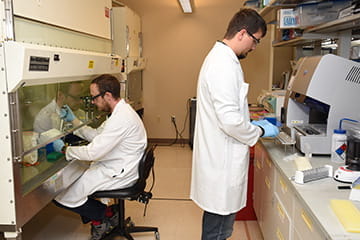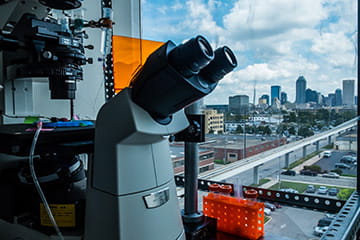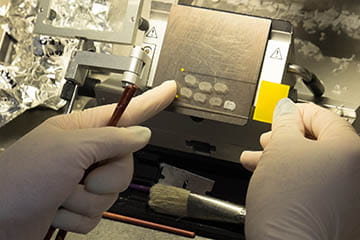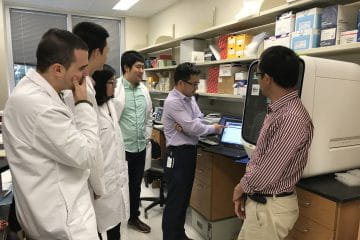Areas of study include computational biology, neuroscience, musculoskeletal and cancer research. The faculty’s unique expertise in neuroscience, musculoskeletal biology, renal biology, and anatomical education research provide a broad range of clinical training to fit career interests.
Video
Genetics researchers take their findings from bench to bedside
Areas of Focus
Get Research Updates
Key Labs and Cores

Medical Genomics
The Center for Medical Genomics at IU School of Medicine is a state-of-the-art technology center that provides medical scientists with affordable access to high-quality high-throughput genomics services in a timely fashion.

Bioinformatics
The Bioinformatics Core at IU School of Medicine provides data analysis, biomedical data management, graphic/web design, communitywide computational consulting and training, and computational tool accessing. The core facilitates collaborative studies that develop or apply computational biology methods.

Cancer Bioinformatics
The Collaborative Core for Cancer Bioinformatics (C3B) is a shared facility of IU Simon Comprehensive Cancer Center and Purdue University Center for Cancer Research that aims to integrate and accelerate cancer discovery, drug discovery, precision medicine and training through a bioinformatics/ molecular genetics/ genomics initiative.



